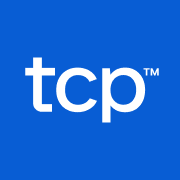Make no mistake: employee recognition isn’t just for millennials. While many buzz pieces have touted the idea that Generation Y craves praise more than most, employees of all ages need recognition, and the benefits of giving it are well-proven.
Why Employee Recognition Programs Matter
If you’re reading this article, chances are you’re considering implementing a new employment recognition program or revamping an outdated one (nobody wants that useless gift on their work anniversary). Employee recognition programs recognize employees for their contributions to an organization and help them feel appreciated outside of their existing compensation.

Employee recognition statistics show the positive impact a meaningful recognition program can have on everything from engagement and retention to talent attraction and company culture, here are just a few of the reasons why your organization should take employee recognition programs seriously:
- Get Their Attention
Ask any manager: recognized employees are more engaged employees. But perhaps even more surprising is the positive effect that such recognition has on employees who aren’t recognized. According to a recent study, recognizing employees improves overall performance by motivating unrecognized employees to work towards achieving their own recognition as well. Here is the list of 200+ Employee Award Titles you can give to recognize your employees.
- Give Them A Reason to Stay
According to a Gallup workplace analysis, employees who do not feel adequately recognized are 2x more likely to say they plan on quitting within the next year. Employee recognition is a relatively cost-efficient way to keep people feeling appreciated and retain good talent.
- Cultivate Better Culture
When an employee talks about an amazing corporate culture, one of the most common qualities they’re speaking to is whether or not they feel valued.

- If You Build It, They Will Come.
Tying in with the point above: a good corporate culture often acts as a lure for potential new employees. Attract top talent with a proven reputation for valuing your employees.
Building Better Recognition
Before digging into the planning and execution of your employee recognition program, it’s first important to understand what exactly makes employee recognition effective.
Keep it Timely
Just as a belated birthday message fails to properly celebrate the occasion, not celebrating your employee’s achievements in a timely manner can weaken your message and make your employee feel like an afterthought. Prioritize celebrating employee wins and you’ll soon find that you have more of them.
Recognize Employees Early, and Often
Feedback should never be saved for the annual performance review. Your employee is making valuable contributions to your organization week after week, and when you fail to recognize them on a regular basis, you risk leaving them feeling under appreciated. And the stats back this up: employees who receive small rewards regularly are 8x more engaged than those who just receive annual bonuses. So don’t wait until your employee has been with the organization for several years to begin looking for ways to recognize their efforts — or it may be too late.
Beware the Boilerplate
At best, vague positive feedback leaves employees feeling mildly appreciated, but unsure as to what exactly they did that was so commendable. At worst, it can come across as insincere. Make sure to be as detailed as possible when expressing appreciation to employees, mentioning the exact action and project, or even specific behaviors demonstrated. For private messages, a handwritten thank-you note from a manager along with any gift will make the message that much more meaningful.

Amplify Your Message
While a private bit of praise or a quiet thank-you gift will undoubtedly have a positive impact on the employee in question, there are several advantages to being more visible with your recognition. By recognizing your employees publicly, you’re holding up their performance as an example to be followed across the organization, as well as giving other employees the opportunity to join in the praise and amplify the positive reinforcement. As a bonus, this public recognition of what went well can ignite valuable discussions across teams and spur innovative changes.
Lead with Organizational Values
Above all, employee recognition should feel authentic and aligned to the organization’s values. Does your organization prize innovation, collaboration, or leadership? Ensure that your program calls out those qualities when bestowing rewards or making company-wide announcements. If your organization emphasizes its commitment to building community with its employees, then birthdays and work anniversaries should be celebrated affairs.
Putting Your Employee Recognition Program into Action
A new employee recognition program is only as good as its implementation. By the time a program is launched, your organization should have already established proper processes, with the right team in place to execute them.
Communication Is Key
When launching your program, be sure to clearly communicate to the rest of the organization why and how the program is occurring. Fail to be clear in your communication, and your program will only confuse and frustrate employees instead of engaging and encouraging them. Get key leaders onboard before program launch to re-enforce HR’s message and ensure successful communication to their teams. In these communications, be sure to include examples of the types of work that warrants rewards.

Get the Whole Team Involved
Positivity is contagious. When you facilitate peer-to-peer recognition in your organization, whether in person or via a platform, it allows employee recognition (and all of its benefits) to spread throughout the company. Encourage your employees to recognize each other: You might be surprised at how it catches on — it might even go “viral.”
Put Your Program Guidelines in Writing
For larger physical or monetary rewards or acts of company-wide recognition, it’s even more crucial for organizations to adhere to clearly written guidelines. These should include everything from eligibility requirements and approval processes to the types of rewards provided and budgeted for. In this way, organizations can ensure that more significant rewards are appropriate for the occasion and are distributed as fairly as possible.
Consider A Variety of Reward Options
While planning your program, keep in mind that not all employees will be motivated by the same things. Organizations should offer a variety of rewards and incentives, from time off and money to thoughtful, handpicked gifts. If your company adheres to careful budgeting processes, consider breaking down the gifts into different categories of cost and achievement. Managers and leaders can then more easily choose the best possible reward for the employee in question.
Test, Tweak, and Repeat
To monitor the progress of your program, be sure to have regular check-ins with both managers and program leaders and keep track of your program results. Schedule in the time to review the data with program leaders and make any changes deemed necessary.
Next Steps
Only 21% of organizations would recommend their employee recognition program to others. Don’t let your organization be one of them.
Related Articles:
Are Businesses Rethinking Their Employee Recognition Programs in 2022?

























